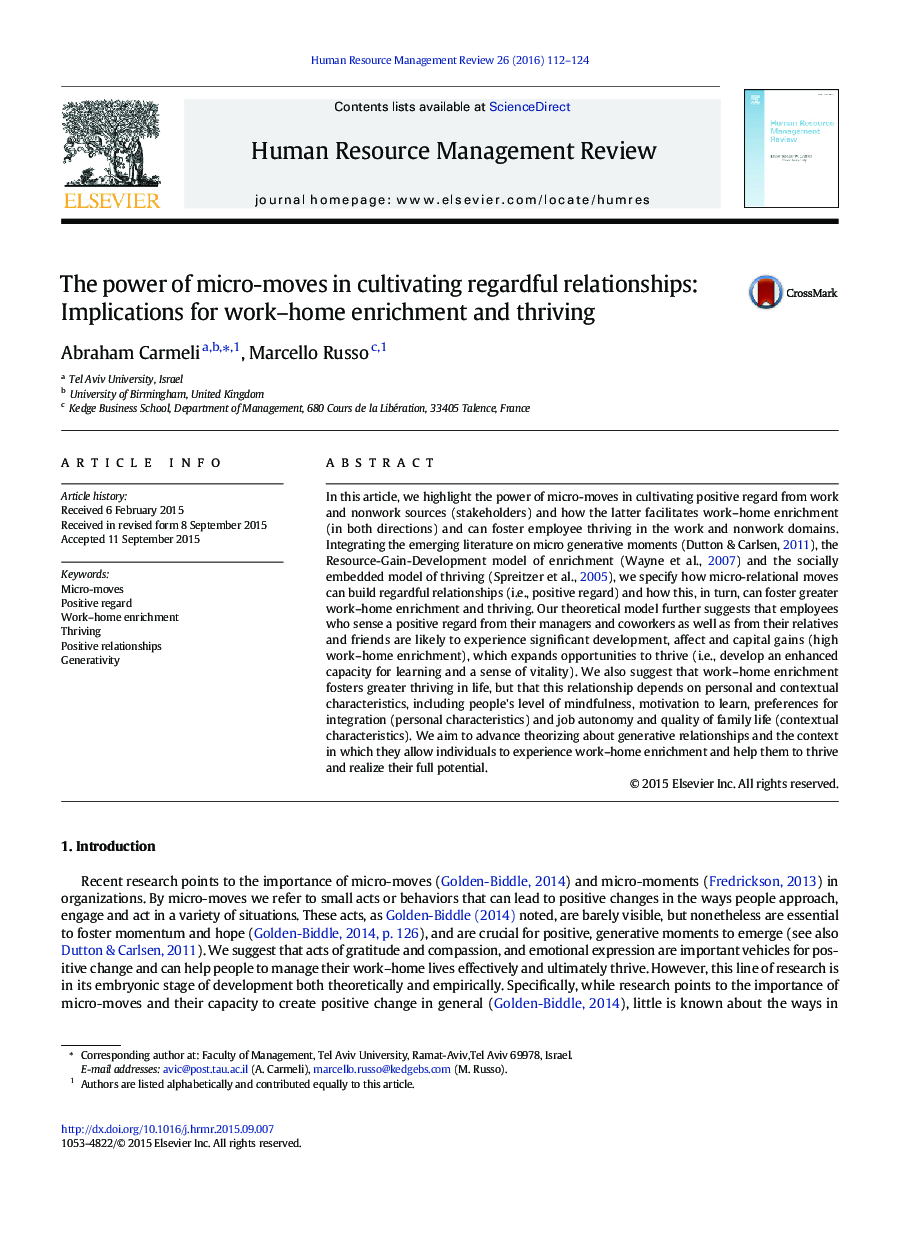| Article ID | Journal | Published Year | Pages | File Type |
|---|---|---|---|---|
| 879551 | Human Resource Management Review | 2016 | 13 Pages |
•This paper proposes some novel theorizing regarding why and how micro-moves can be key vehicles for conveying positive regard, a concept that has rarely been studied in organizational studies, from significant others is key for facilitating work–home enrichment and augmenting one's thriving at work.•We develop a conceptual model in which we highlight the power of micro-moves in cultivating positive regard from work and nonwork sources (stakeholders) and how the latter facilitates work–home enrichment (in both directions) and can foster employee thriving in the work and nonwork domains. Drawing and integrating the emerging literature on micro generative moments (Dutton & Carlsen, 2011), the Resource-Gain-Development model of enrichment (Wayne et al., 2007) and the socially embedded model of thriving (Spreitzer et al., 2005), we specify how micro-relational moves can build regardful relationships (i.e., positive regard) and how this, in turn, can foster greater work–home enrichment and thriving.•We also specify individual and contextual boundary conditions for the link between work–home enrichment and thriving, namely people's level of mindfulness, motivation to learn, preferences for integration (personal characteristics) and job autonomy and quality of family life (contextual characteristics).
In this article, we highlight the power of micro-moves in cultivating positive regard from work and nonwork sources (stakeholders) and how the latter facilitates work–home enrichment (in both directions) and can foster employee thriving in the work and nonwork domains. Integrating the emerging literature on micro generative moments (Dutton & Carlsen, 2011), the Resource-Gain-Development model of enrichment (Wayne et al., 2007) and the socially embedded model of thriving (Spreitzer et al., 2005), we specify how micro-relational moves can build regardful relationships (i.e., positive regard) and how this, in turn, can foster greater work–home enrichment and thriving. Our theoretical model further suggests that employees who sense a positive regard from their managers and coworkers as well as from their relatives and friends are likely to experience significant development, affect and capital gains (high work–home enrichment), which expands opportunities to thrive (i.e., develop an enhanced capacity for learning and a sense of vitality). We also suggest that work–home enrichment fosters greater thriving in life, but that this relationship depends on personal and contextual characteristics, including people's level of mindfulness, motivation to learn, preferences for integration (personal characteristics) and job autonomy and quality of family life (contextual characteristics). We aim to advance theorizing about generative relationships and the context in which they allow individuals to experience work–home enrichment and help them to thrive and realize their full potential.
